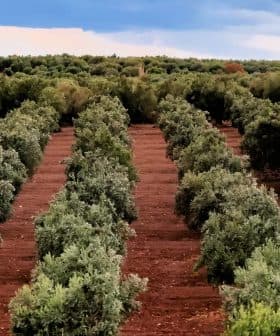Codex Wants More Data on Engineered Soybean Oils
The Codex Committee on Fats and Oils has delayed seeking an international standard for genetically-engineered high-oleic soybean oil, which could potentially rival olive oil, for two more years. The committee wants more detailed production and export forecasts before considering the proposal, despite projections of a significant rise in production and exports of the new oil in the near future.

Olive oil has some breathing room. Bioetch giants Monsanto and DuPont will have to wait two more years to seek an international standard for genetically-engineered high-oleic soy bean oil — which some say could become olive oil’s biggest rival.
That’s because the Codex Committee on Fats and Oils (CCFO), which is responsible for oil standards, wants more detailed production and export forecasts first.
It recently rejected a United States proposal for a standard to “facilitate global trade” in the new oil, which the U.S. expects to soon gain wide acceptance in the food processing industry thanks to its long stability and shelf life, and neutral flavor.
Exports to reach 31,300 tons by 2017
According to U.S. projections, production of high-oleic acid soybean oil is set to rise 20-fold in less than five years — from nearly 50,000 tons in 2012 to more than a million in 2017 — while exports rise from 230 to 31,300 tons.
Though still just a small proportion of global production of traditional soybean oil, which in 2011/12 was about 42 million tons, the U.S. predicts the new soybean varieties will steal significant market share due to traits improving their healthfulness and functionality in foods. The latter is largely due to their being engineered to be high in the heart-healthy monounsaturated fat olive oil is famed for.
Forecast trade too low
According to the Codex Alimentarius Commission’s report on the CCFO session held in Malaysia from February 25 to March 1, several delegations had supported the U.S. proposal: “In their view the oil could contribute to a healthier diet and…Codex should move more quickly to address the needs of its members.”
But several others said the production and international trade figures were too low to justify new work towards including a standard for the oil.
In the end, the CCFO agreed — despite “reservations by Italy and Switzerland” — to set up an electronic working group chaired by the U.S. to revise the proposal for consideration at its next session, in February 2015.
High-oleic palm oil from Colombia
Meanwhile, Colombia’s bid on including high-oleic palm oil in the vegetable oils standard met the same fate — an electronic working group will revise the proposal ahead of the next session.
Colombia had argued the new variety would “contribute to healthy diet because of (its) composition of fatty acids.”
Several delegations supported it, though one said the product should be referred to as mid-oleic acid, for consistency with other high- and mid-oleic acid oils. Others said the production volume was too low and trade data lacking.
High-stearic, high-oleic sunflower oil
Argentina’s delegation was unhappy time ran out at the meeting before it could present proposals including amending the standard to include high-stearic high-oleic sunflower oil.
According to the Codex report, Argentina said that given “the importance of the issues, (and) the workload and frequency of the Committee, a decision should have been taken to expedite the work and to discuss all items on the agenda, taking into account the efforts made by Members to participate in the Committee.”
The report also said the session was attended by 101 participants from 35 countries, among them Robert Reeves, public affairs director of soybean industry coalition Qualisoy.
USDA says there was “wide support” for new work
In a Codex news report on March 8, the U.S. Department of Agriculture said that there had been “wide support” for proposals for new work by countries including the U.S., Argentina, Australia, Colombia and Iran, “but the Committee (CCFO) did not agree to recommend any of these proposals to the (Codex Alimentarius) Commission.”
“Electronic working groups were established for these new work proposals with the exception of the Australian proposal to revise the campesterol level in olive oil to accurately reflect levels found in all olive oil producing regions,” it said.




